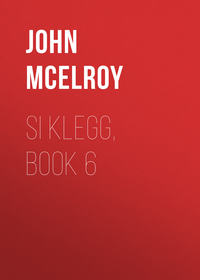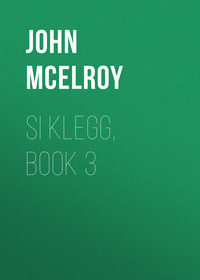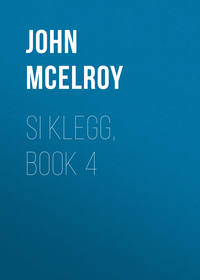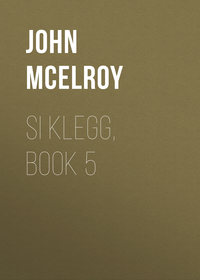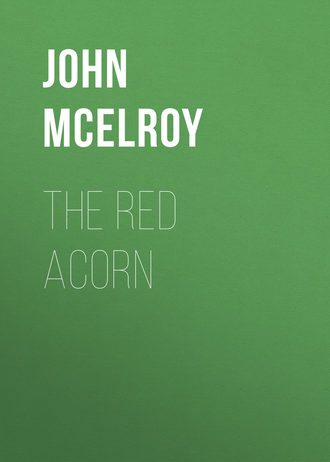 полная версия
полная версияThe Red Acorn
“Shall I break with Rachel? How can I? And what possible excuse can I assign for it?”
There came no answer to this save the spurs with which base self-love was pricking the sides of his intent, and he recoiled from it—ashamed of himself, it is true, but less ashamed at each renewed consideration of the query.
He hastened home that he might receive a greeting that would efface the memory of the reception he had met with in the street. There, at least, he would be regarded as a hero, returning laurel-crowned from the conflict.
As he entered the door his father, tall, spare and iron-gray, laid down the paper he was reading, and with a noticeable lowering of the temperature of his wonted calm but earnest cordiality, said simply:
“How do you do? When did you get in?”
“Very well, and on the 10:30 train.”
“Did all your company come?”
Harry winced, for there was something in his father’s manner, more than his words, expressive of strong disapproval. He answered:
“No; I was unwell. The water and the exposure disagreed with me, and I was allowed to come on in advance.”
Mr. Glen, the elder, carefully folded the paper he was reading and laid it on the stand, as if its presence would embarrass him in what he was about to say. He took off his eye-glasses, wiped them deliberately, closed them up and hesitated for a moment, holding them between the thumb and fore finger of one hand, before placing them in their case, which he had taken from his pocket with the other.
These were all gestures with which experience had made Harry painfully familiar. He used to describe them to his boy intimates as “the Governor clearing for action.” There was something very disagreeable coming, and he awaited it apprehensively.
“Were you”—the father’s cold, searching eyes rested for an instant on the glasses in his hand, and then were fixed on his son’s face—“were you too ill the day of the fight to accompany your command?”
Harry’s glance quailed under the penetrating scrutiny, as was his custom when his father subjected him to a relentless catechism; then he summoned assurance and assumed anger.
“Father,” he said, “I certainly did not expect that you would join these mean-spirited curs in their abuse of me, but now I see that–”
“Henry, you evade the question.” The calm eyes took on a steely hardness. “You certainly know by this time that I always require direct answers to my questions. Now the point is this: You entered this company to be its leader, and to share all its duties with it. It went into a fight while you remained back in camp. Why was this so? Were you too sick to accompany it?”
“I certainly was not feeling well.”
“Were you too ill to go along with your company?”
“—and—there—was—some—work—in—camp that—needed—to—be—done—and there was enough without me, and—I—I—”
“That is sufficient,” said the elder man with a look of scorn that presently changed into one of deeply wounded pride. “Henry, I know too well your disposition to shirk the unpleasant duties of life, to be much surprised that, when tried by this test, you were found wanting. But this wounds me deeply. People in Sardis think my disposition hard and exacting; they think I care for little except to get all that is due me. But no man here can say that in all his long life Robert Glen shirked or evaded a single duty that he owed to the community or his fellow-men, no matter how dangerous or disagreeable that duty might be. To have you fail in this respect and to take and maintain your place in the front rank with other men is a terrible blow to my pride.”
“O, Harry, is that you?” said his mother, coming into the room at that moment and throwing herself into her son’s arms. “I was lying down when I heard your voice, and I dressed and hurried down as quickly as possible. I am so glad that you have come home all safe and well. I know that you’ll contradict, for your poor mother’s sake, all these horrible stories that are worrying her almost to death.”
“Unfortunately he has just admitted that those stories are substantially true,” said the father curtly.
“I won’t believe it,” sobbed his mother, “until he tells me so himself. You didn’t, did you, back out of a fight, and let that Bob Bennett, whose mother used to be my sewing girl, and whom I supported for months after he was born, and his father died with the cholera and left her nothing, by giving her work and paying her cash, and who is now putting on all sorts of airs because everybody’s congratulating her on having such a wonderful son, and nobody’s congratulating me at all, and sometimes I almost which I was dead.”
Clearness of statement was never one of Mrs. Glen’s salient characteristics. Nor did deep emotion help her in this regard. Still it was only too evident that the fountains of her being were moved by having another woman’s son exalted over her own. Her maternal pride and social prestige were both quivering under the blow.
Harry met this with a flank movement.
“You both seem decidedly disappointed that I did not get myself wounded or killed,” he said.
“That’s an unmanly whimper,” said his father contemptuously.
“Why, Harry, Bob Bennett didn’t get either killed or wounded,” said his mother with that defective ratiocination which it is a pretty woman’s privilege to indulge in at her own sweet will.
Harry withdrew from the mortifying conference under the plea of the necessity of going to his room to remove the grime of travel.
He was smarting with rage and humiliation. His panoply of conceit was pierced for the first time since the completion of his collegiate course sent him forth into the world a being superior, in his own esteem, to the accidents and conditions that the mass of inferior mortals are subject to. Yet he found reasons to account for his parent’s defection to the ranks of his enemies.
“It’s no new thing,” he said, while carefully dressing for a call upon Rachel in the evening, “for father to be harsh and unjust to me, and mother has one of her nervous spells, when everything goes wrong with her.”
“Anyhow,” he continued, “there’s Ned Burnleigh, who understands me and will do me justice, and he amounts to more than all of Sardis—except Rachel, who loves me and will always believe that what I do is right.”
He sat down at his desk and wrote a long letter to Ned, inveighing bitterly against the stupidity and malice of people living in small villages, and informing him of his intention to remove to Cincinnati as soon as an opening could be found for him there, which he begged Ned to busy himself in discovering.
Attired in his most becoming garb, and neglecting nothing that could enhance his personal appearance, he walked slowly up the hill in the evening to Rachel Bond’s house. The shrinkage which his self-sufficiency had suffered had left room for a wonderful expansion of his affection for Rachel, whose love and loyalty were now essential to him, to compensate for the falling away of others. The question of whether he should break with her was now one the answering of which could be postponed indefinitely. There was no reason why he should not enjoy the sweet privileges of an affianced lover during his stay in Sardis. What would happen afterward would depend upon the shape that things took in his new home.
He found Rachel sitting on the piazza. Though dressed in the deepest and plainest black she had never looked so surpassingly beautiful. As is usually the case with young women of her type of beauty, grief had toned down the rich coloring that had at times seemed almost too exuberant into that delicate shell-like tint which is the perfection of nature’s painting. Her round white arms shone like Juno’s, as the outlines were revealed by the graceful motions which threw back the wide sleeves. Her wealth of silken black hair was drawn smoothly back from her white forehead, over her shapely head, and gathered into a simple knot behind. Save a black brooch at her throat, she wore no ornaments—not even a plain ring.
She rose as Harry came upon the piazza, and for a moment her face was rigid with intensity of feeling. This evidence of emotion went as quickly as it came, however, and she extended her hand with calm dignity, saying simply:
“You have returned, Mr. Glen.”
In his anxiety to so play the impassioned lover as to conceal the recreancy he had fostered in his own heart, Harry did not notice the coolness of this greeting. Then, too, his self-satisfaction had always done him the invaluable service of preventing a ready perception of the repellant attitudes of others.
He came forward eagerly to press a kiss upon her lips, but she checked him with uplifted hand.
“O, the family’s in there, are they?” said he, looking toward the open windows of the parlor. “Well, what matter? Isn’t it expected that a fellow will kiss his affianced wife on his return, and not care who knows it?”
He pointed to the old apple-tree where they had plighted their troth that happy night, with a gesture and a look that was a reminder of their former meeting and an invitation to go thither again. She comprehended, but refused with a shudder, and, turning, motioned him to the farther end of the piazza, to which she led the way, moving with a sweeping gracefulness of carriage that Harry thought had wonderfully ripened and perfected in the three months that had elapsed since their parting.
“‘Fore gad,” he said to himself. (This was a new addition to his expletory vocabulary, which had accrued from Ned Burnleigh’s companionship.) “I’d like to put her alongside of one of the girls that Ned’s always talking about. I don’t believe she’s got her equal anywhere.”
Arriving at the end of the piazza he impetuously renewed his attempt at an embrace, but her repulse was now unmistakable.
“Sit down,” she said, pointing to a chair; “I have something to say to you.”
Harry’s first thought was a rush of jealously. “Some rascal has supplanted me,” he said bitterly, but under his breath.
She took a chair near by, put away the arm he would have placed about her waist, drew from her pocket a dainty handkerchief bordered with black, and opened it deliberately. It shed a delicate odor of violets.
Harry waited anxiously for her to speak.
“This mourning which I wear,” she began gently, “I put on when I received the news of your downfall.”
“My downfall?” broke in Harry hotly. “Great heavens, you don’t say that you, too, have been carried away by this wretched village slander?”
“I put it on,” she continued, unmindful of the interruption, “because I suffered a loss which was greater than any merely physical death could have occasioned.”
“I don’t understand you.”
“My faith in you as a man superior to your fellows died then. This was a much more cruel blow than your bodily death would have been.”
“‘Fore gad, you take a pleasant view of my decease—a much cooler one, I must confess, than I am able to take of that interesting event in my history.”
Her great eyes blazed, and she seemed about to reply hotly, but she restrained herself and went on with measured calmness:
“The reason I selected you from among all other men, and loved you, and joyfully accepted as my lot in life to be your devoted wife and helpmate, was that I believed you superior in all manly things to other men. Without such a belief I could love no man.”
She paused for an instant, and Harry managed to stammer:
“But what have I done to deserve being thrown over in this unexpected way?”
“You have not done anything. That is the trouble. You have failed to do that which was rightfully expected of you. You have allowed others, who had no better opportunities, to surpass you in doing your manly duty. Whatever else my husband may not be he must not fail in this.”
“Rachel, you are hard and cruel.”
“No, I am only kind to you and to myself. I know myself too well to make a mistake in this respect. I have seen too many women who have been compelled to defend, apologize, or blush for their husband’s acts, and have felt too keenly the abject misery of their lives to take the least chance of adding myself to their sorrowful number. If I were married to you I could endure to be beaten by you and perhaps love you still, but the moment I was compelled to confess your inferiority to some other woman’s husband I should hate you, and in the end drag both of us down to miserable graves.”
“But let me explain this.”
“It would be a waste of time,” she answered coldly. “It is sufficient for me to know that you are convicted by general opinion of having failed where a number of commonplace fellows succeeded. You, yourself, admit the justice of this verdict by tame submission to it, making no effort to retrieve your reputation. I can not understand how this could be so if you had any of the qualities that I fondly imagined you possessed in a high degree. But this interview is being protracted to a painful extent. Let us say good night and part.”
“Forever?” he stammered.
“Yes.”
She held out her hand for farewell. Harry caught it and would have carried it to his lips, but she drew it away.
“No; all that must be ended now,” she said, with the first touch of gentleness that had shaded her sad, serious eyes.
“Will you give me no hope?” said Harry, pleadingly.
“When you can make people forget the past—if ever—” she said, “then I will change this dress and you can come back to me.”
She bowed and entered the house.
Chapter V. The Lint-scraping and Bandage-making Union
At length I have acted my severest part: I feel the woman breaking in upon me, And melt about my heart: My tears will flow.– Addison.Rachel Bond’s will had carried her triumphantly through a terrible ordeal—how terrible no one could guess, unless he followed her to her room after the interview and saw her alone with her agony. She did not weep. Tears did not lie near the surface with her. The lachrymal glands had none of that ready sensitiveness which gives many superficial women the credit of deep feeling. But when she did weep it was not an April shower, but a midsummer tempest.
Now it was as if her intense grief were a powerful cautery which seared and sealed every duct of the fountain of tears and left her eyes hot and dry as her heart was ashes.
With pallid face and lips set until the blood was forced from them, and they made a thin purplish line in the pale flesh, she walked the floor back and forth, ever back and forth, until a half-stumble, as she was turning in a dreary round, revealed to her that she was almost dropping from exhaustion.
She had thought her love for Harry had received its death-blow when her pride in him had been so rudely shattered. But this meeting, in which she played the part set for herself with a brave perfection that she had hardly deemed possible, had resurrected every dear memory, and her passion sprung into life again to mock and jeer at her efforts to throttle it out of existence. With him toppling from the pedestal on which her husband must stand, she had told herself that there was naught left but to roll a great stone against the sepulcher in which her love must henceforth lie buried, hopeless of the coming of any bright angle to unseal the gloomy vault. Yet, despite the entire approval given this by her judgment, her woman’s heart cried bitterly for a return of the joys out of which the beauty had fled forever.
Hours passed in this wrestle with pain. How many she did not know, but when she came forth it was with the composure of one who had fought the fight and won the victory, but at a cost that forbade exultation.
There was one ordeal that thus far she had not been called upon to endure. From the day on which she had donned her sable robes to that of Harry’s return no one had ventured to speak his name in her presence. Even her father and mother, after the first burst of indignation, had kept silence in pity for her suffering, and there was that in her bearing that forbade others touching upon a subject in her hearing that elsewhere was discussed with the hungry avidity of village gossips masticating a fresh scandal.
But she could not be always spared thus. She had not been so careful of the feelings of less favored women and girls, inferior to her in brightness, as to gain any claim for clement treatment now, when the displacement of a portion of her armor of superiority gave those who envied or disliked her an unprotected spot upon which to launch their irritating little darts.
All the sewing, dorcas and mite societies of the several churches in Sardis had been merged into one consolidated Lint-Scraping and Bandage-Making Union, in whose enlarged confines the waves of gossip flowed with as much more force and volume as other waves gain when the floods unite a number of small pools into one great lake.
In other days a sensational ripple starting, say in the Episcopalian “Dorcas,” was stilled into calmness ere it passed the calm and stately church boundaries. It would not do to let its existence be even suspected by the keen eyes of the freely-censorious Presbyterian dames, or the sharp-witted, agile-tongued Methodist ladies.
And, much as these latter were disposed to talk over the weaknesses and foibles of their absent sisters in the confidential environments of the Mite Society or the Sewing Circle, they were as reluctant to expose these to the invidious criticisms of the women of the other churches as if the discussed ones had been their sisters in fact, and not simply through sectarian affiliation. Church pride, if nothing else, contributed to the bridling of their tongues, and checking the free circulation of gossip.
“Them stuck-up Presbyterian and Episcopalian women think little enough on us now, the land knows,” Mrs. Deborah Pancake explained to a newly-received sister, whom she was instructing in elementary duties. “There’s no use giving ‘em more reason for looking down upon us. We may talk over each other’s short-comings among ourselves, private like, because the Bible tells us to admonish and watch over each other. But it don’t say that we’re to give outsiders any chance to speak ill of our sisters-in-Christ.”
And Mrs. Euphrosyne Pursifer remarked to the latest agreeable accession to the parish of St. Marks, with that graceful indirection that gave her the reputation in Sardis of being a feminine Talleyrand:
“Undoubtedly the ladies in these outside denominations are very worthy women, dear, but a certain circumspection seems advisable in conversing with them on subjects that we may speak of rather freely among ourselves.”
The rising fervor of the war spirit melted away most of these barriers to a free interchange of gossip. With the first thrill of pleasure at finding that patriotism had drawn together those whom the churches had long held aloof came to all the gushing impulse to cement the newly-formed relationship by confiding to each other secrets heretofore jealously guarded. Nor should be forgotten the “narrative stimulus” every one feels on gaining new listeners to old stories.
It was so graciously condescending in Mrs. Euphrosyne Pursifer to communicate to Mrs. Elizabeth Baker some few particulars in which her aristocratic associates of St. Marks had grieved her by not rising to her standard of womanly dignity and Christian duty, that Mrs. Baker in turn was only too happy to reciprocate with a similar confidence in regard to her intimate friends of Wesley Chapel.
It was this sudden lapsing of all restraint that made the waves of gossip surge like sweeping billows.
And the flotsam that appeared most frequently of late on their crests, and that was tossed most relentlessly hither and thither, was Rachel Bond’s and Harry Glen’s conduct and relations to each other.
The Consolidated Lint-scraping and Bandage-making Union was holding a regular session, and gossip was at spring-tide.
“It is certainly queer,” said Mrs. Tufis, one of her regulation smiles illuminating her very artificial countenance; “it is singular to the last degree that we don’t have Miss Rachel Bond among us. She is such a LOVELY girl. I am very, very fond of her, and her heart is thoroughly in unison with our objects. It would seem impossible for her to keep away.”
All this with the acrid sub-flavor of irony and insincerity with which an insincere woman can not help tainting even her most sincere words.
“Yes,” said Mrs. Tabitha Grimes, with a premeditated acerbity apparent even in the threading of her needle, into the eye of which she thrust the thread as if piercing the flesh of an enemy with a barb; “yes;” she pulled the thread through with a motion as if she enjoyed its rasping against the steel. “Rachel Bond started into this work quite as brash as Harry Glen started into the war. Her enthusiasm died out about as quickly as his courage, when it came to the actual business, and she found there was nobody to admire her industry, or the way she got herself up, except a parcel of married women.”
The milk of human kindness had begun to curdle in Mrs. Grimes’s bosom, at an early and now rather remote age. Years of unavailing struggle to convince Mr. Jason Grimes that more of his valuable time should be devoted to providing for the wants of his family, and less to leading the discussion on the condition of the country in the free parliament that met around the stove in the corner grocery, had carried forward this lacteal fermentation until it had converted the milky fluid into a vinegarish whey.
“Well, why not?” asked Elmira Spelter, the main grief of whose life was time’s cruel inflexibility in scoring upon her face unconcealable tallies of every one of his yearly flights over her head, “why shouldn’t she enjoy these golden days? Youth is passing, to her and to all of us, like an arrow from the bow. It’d be absurd for her to waste her time in this stuffy old place, when there are so many more attractive ones. It ought to be enough that those of us who have only a few remnants of beauty left, should devote them to this work.”
“Well,” snapped Mrs. Grimes, “your donation of good looks to the cause—even if you give all you got—will be quite modest, something on the widow’s mite order. You might easily obey the scriptural injunction, and give them with your right hand without your left knowing what was being done.”
Elmira winced under this spiteful bludgeoning, but she rallied and came back at her antagonist.
“Well, my dear,” she said quietly, “the thought often occurs to me, that one great reason why we both have been able to keep in the straight and narrow path, is the entire lack of that beauty which so often proves a snare to the feet of even the best-intentioned women.”
It was Mrs. Grimes’s turn to wince.
“A hit! a palpable hit!” laughed pretty Anna Bayne, who studied and quoted Shakespeare.
“The mention of snares reminds me,” said Mrs. Grimes, “that I, at least, did not have to spread any to catch a husband.”
“No,” returned Elmira, with irritating composure, “the poorer kinds of game are caught without taking that trouble.”
“Well”—Mrs. Grimes’s temper was rising so rapidly that she was losing her usual skill in this verbal fence—“Jason Grimes, no doubt, has his faults, as all men have; but he is certainly better than no husband at all.”
“That’s the way for you to think,” said Elmira, composedly, disregarding the thrust at her own celibacy. “It’s very nice in you to take so cheerful a view of it. SOMEBODY had to marry him, doubtless, and it’s real gratifying to see one accepting the visitations of Providence in so commendable a spirit.”
To use the language of diplomacy, the relations between these ladies had now become so strained that a rupture seemed unavoidable.
“Heavens, will this quarrel ne’er be mended?” quoted Anna Bayne, not all sorry that these veteran word-swordsmen, dreaded by everybody, were for once turning their weapons on each other.
Peace-making was one of the prerogatives assumed by Mrs. Tufis, as belonging to the social leadership to which she had elected herself. She now hastened to check the rapidly-opening breach.
“Ladies,” she said blandly, “the discussion has wandered. Our first remarks were, I believe about Miss Bond, and there was a surmise as to her reasons for discontinuing attendance upon our meetings.”
The diversion had the anticipated effect. The two disputants gladly quit each other, to turn upon and rend the object flung in between them.
“Why Rachel Bond don’t come here any more?” said Mrs. Grimes, with a sniff that was one of the keenest-edged weapons in her controversial armory. “When you know how little likely she is to do anything that’s not going to be for her benefit in some way. She’s mighty particular in everything, but more particular in that than in anything else.”


